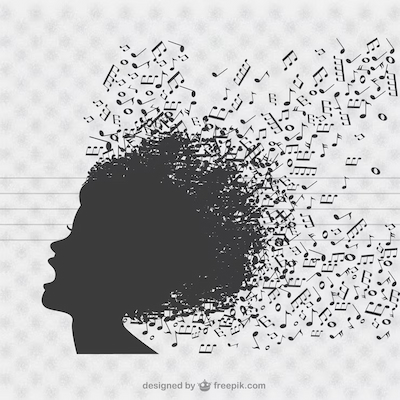
Music is an art form that communicates through sounds and rhythms, but what many fail to notice is that silence plays an equally crucial role in this context. Silence in music is not merely the absence of sound; it is an active element that contributes to the construction of the musical narrative. When used effectively, silence can create tension, evoke emotions, and offer the listener moments of reflection that are just as important as the notes played. It is a space where the mind can wander, allowing the music to resonate in unexpected ways.
Moreover, silence can be a powerful tool of expression. It can be used to emphasize an idea, highlight a melody, or create a contrast that makes the music even more impactful. The ability of a composer or performer to manipulate silence can transform a simple melody into an emotional masterpiece. Understanding the importance of silence in music is essential for any musician, composer, or art enthusiast, as it enriches the listening experience and the musical interpretation.
How Musical Pauses and Silence Work in Music
Musical pauses are moments when there is no sound, but that does not mean these moments are empty or meaningless. In fact, pauses are carefully planned and executed to create a cohesive musical structure. They can be seen as breathing points within a composition, allowing both the musician and the listener to pause and absorb what has been played up until that moment. This structure is essential for the fluidity of music, as pauses help define the time and rhythm, creating a cadence that can be both smooth and dramatic.
Silence can also be used to create anticipation. When a piece of music is nearing its climax, a moment of silence can intensify the listener’s expectation. This brief silence makes the next note or chord feel even more impactful. This technique is often used in genres like rock, classical music, and even in film soundtracks, where the silence before a big moment can keep the audience in suspense.
Furthermore, silence can be a form of communication. In a live performance, for example, a musician may use silence to interact with the audience, creating an emotional connection. This non-verbal exchange can be as powerful as any note played. Silence, in this context, becomes part of the musical language, allowing the artist to express themselves more deeply and authentically.
Finally, silence is fundamental to musical dynamics. In a composition, the variation between sound and silence can create a rich and engaging narrative. Composers often play with these dynamics to guide the piece’s emotion, using silence as an element that can soften or intensify the musical experience. This relationship between sound and silence is what makes music such an intriguing and multifaceted art form.

Benefits of Understanding the Role of Silence in Music
Understanding the role of silence in music brings numerous benefits, both for musicians and listeners. First, for musicians, this understanding allows for a richer and more expressive interpretation of the pieces they perform. When a musician recognizes the importance of pauses, they can use silence more intentionally, resulting in performances that are more exciting and engaging. This not only improves the quality of the music but also enhances the connection with the audience.
Additionally, silence can serve as a powerful tool in composition. Composers who understand how to use silence in their works can create more dynamic and impactful pieces. Silence can be used to create contrasts, emphasize important moments, and even develop musical themes. This approach can lead to creations that stand out and remain memorable to the listener, as the use of silence can transform a simple melody into something unforgettable.
Another advantage is that silence can increase concentration and appreciation of music. In a world full of distractions, moments of silence in music can provide a necessary pause, allowing listeners to connect more deeply with the piece. This connection can result in a richer and more meaningful listening experience, where every note and every pause gains new significance.
Finally, understanding the role of silence in music can enrich the listening experience. Listeners who recognize the importance of silence are more likely to notice nuances and details that might otherwise go unnoticed. This attention to silence and pauses can transform the way music is experienced, leading to a deeper appreciation and a stronger emotional connection with the works.
How Silence in Music Impacts Listening and Sound Communication
Silence creates space for reflection. When the music stops, the listener is invited to reflect on what has been heard, allowing for a more profound and contemplative experience.
Musical pauses increase musical expressiveness. They can emphasize certain parts of the music, making them more impactful and memorable.
Silence can intensify emotions in musical interpretation. A moment of silence can amplify the emotional charge of a piece, making the listener feel more intensely.
The expressive power of silence helps in the construction of sonic narratives. It can be used to create tension or resolution, guiding the listener through a musical journey.
Silence is essential for musical dynamics. The variation between sound and silence can create a rich and interesting musical structure, keeping the listener engaged.
The impact of silence can transform the listener’s experience. When used properly, silence can create moments of beauty and introspection that remain etched in memory.
Silence in music, therefore, is not merely the absence of sound but an integral part of sound communication. It shapes how music is perceived and lived, influencing both the execution and reception of works. The ability to use silence effectively can elevate music to a new level, transforming it into a truly powerful experience.

Did You Enjoy Learning About the Role of Silence in Music and Its Expressive Power?
Understanding the role of silence in music is not just an intellectual exercise, but a profound journey that uncovers the hidden depths and intricacies of this universal art form. Silence, often overlooked, plays a pivotal role in shaping the emotional landscape of a musical composition. By intentionally exploring how silence and pauses are woven into a piece, both musicians and listeners open themselves up to a more profound connection with the music. When silence is strategically placed, it does more than create a gap; it transforms the way the music is perceived, offering new layers of meaning, tension, and emotion.
For musicians, mastering the art of silence offers a means of communication beyond the notes. It allows them to shape the dynamics of a performance, guiding the listener through the highs and lows of a piece. For listeners, a deeper understanding of silence enhances their appreciation and emotional engagement with the music, as they begin to recognize the subtle ways in which each pause and moment of stillness can shift the atmosphere, drawing out feelings that might otherwise go unnoticed.
If this exploration of silence has piqued your interest, consider continuing your journey into the world of music, where you will discover how every element—whether a soaring melody or a quiet pause—works together to shape the emotional and intellectual experience of music. Music, as a universal language, speaks directly to the heart, and silence serves as an essential, yet often unsung, part of this dialogue. By delving deeper into its nuances, we not only enhance our musical experiences but also gain insight into the very nature of emotional expression itself. Silence, in all its forms, is a profound and integral element that shapes how we connect with and understand the beauty of music.
Frequently Asked Questions
What is the importance of silence in music?
Silence is essential. It creates space for sounds to stand out. Without it, music can become tiring. Think of silence as what gives strength to the melody.
How does silence affect emotion in music?
Silence can increase emotion. It makes you wait, feel, and react. A moment of pause can make an intense part even more powerful.
Is the role of silence in music and its expressive power universal?
Yes, it is! Different cultures use silence in unique ways. But the feeling it brings is the same: connection and emotion.
Can silence be considered a musical element?
Absolutely! Silence is an element. It can have rhythm, duration, and function, just like a note. Don’t underestimate the power it holds.
How can I use silence in my own music?
Experiment with pauses in your compositions. Try placing silence between your favorite notes. You’ll see how it changes the way the music is felt.

